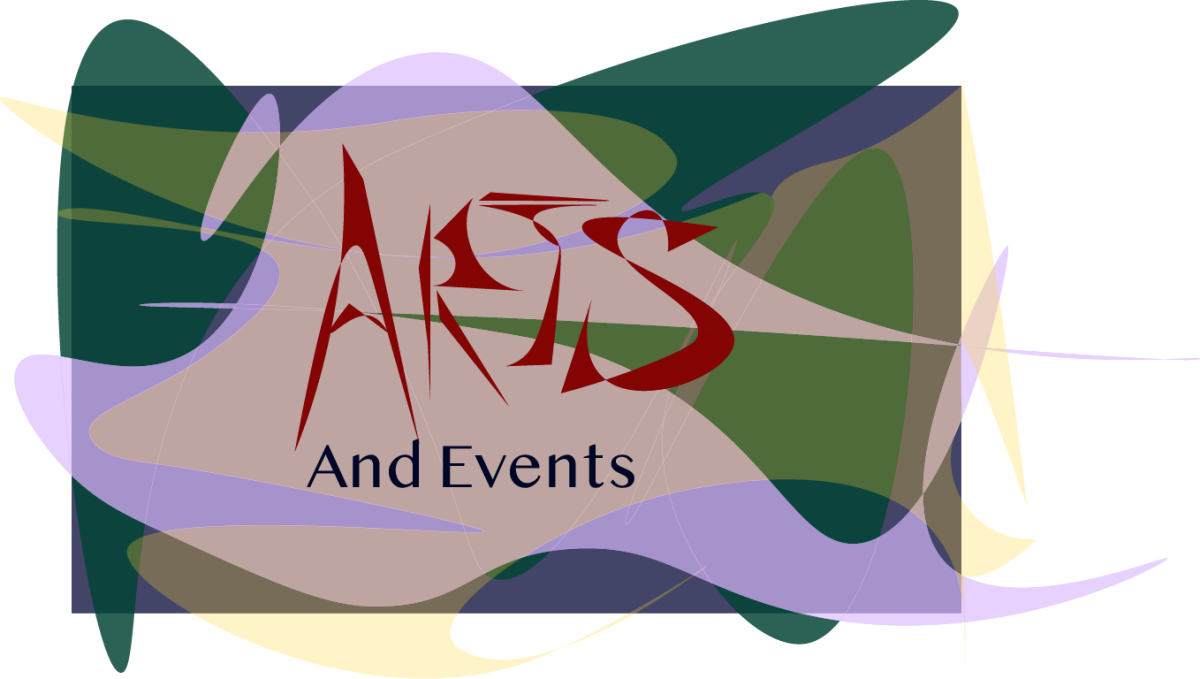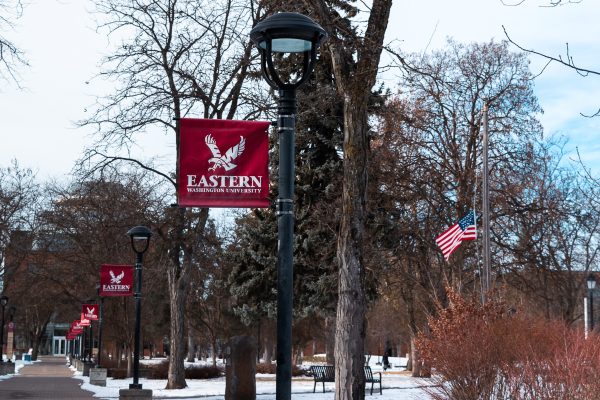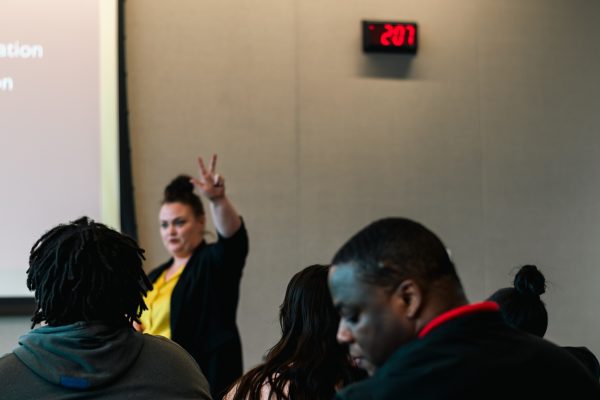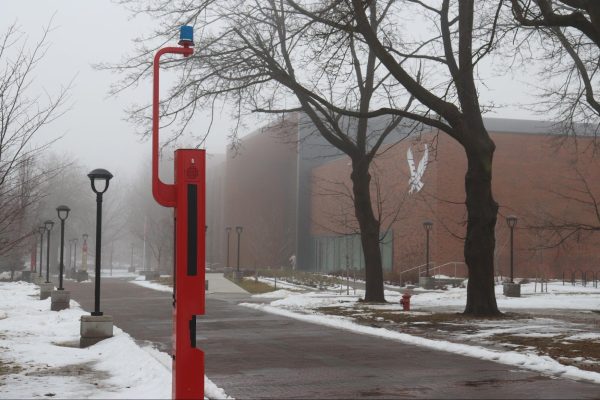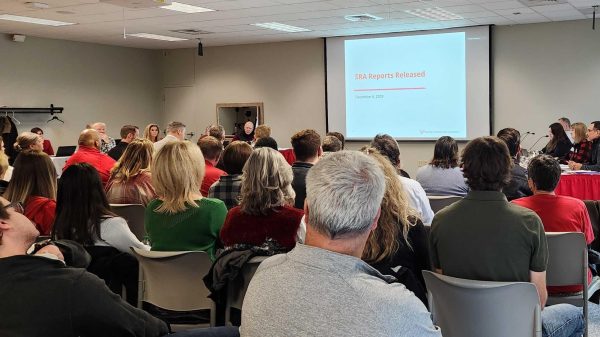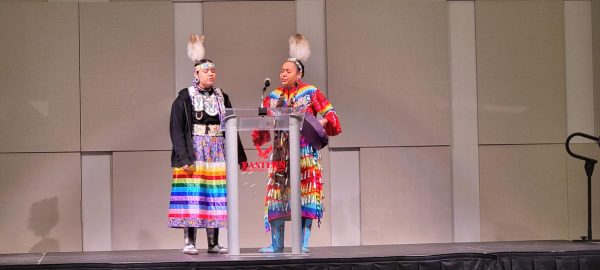Student finds campus disability support only goes so far
Timothy “TJ” Breitenfelt walks around campus with Roxanna, his service dog. Breitenfelt is mostly blind, and has to rely on EWU’s Disability Support Services to get through school | Photo courtesy Rebecca Pettingill
February 8, 2018
Senior Timothy “TJ” Breitenfelt is one of only 12 blind or visually impaired students registered with EWU Disability Support Services (DSS).
Breitenfelt was born with a degenerative disease called Retinitis Pigmentosa. It is a genetic disorder that causes people to lose sight gradually over time. While Breitenfelt still has vision, he lost the ability to read print completely around seventh or eighth grade. He can see light, shapes, shadows and distinguish light colors from dark colors, but it is not very beneficial to him.
This is where Roxanna comes in. Roxanna is Breitenfelt’s guide dog. She has been with him for the last three years. Breitenfelt noted that it is important to ask before petting her. Roxanna’s main purpose is to help Breitenfelt navigate. When people stop and pet her, it distracts her from doing her job and puts Breitenfelt’s safety at risk.
As for Breitenfelt, he does not like to be touched when approached and said that introductions help him know who he is talking to since he does not have any visual clues. Ultimately, Breitenfelt just wants the same courtesy as anybody else would receive.
“I just kind of want to be treated and identified as an equal,” said Breitenfelt. “I’m just as intelligent as everyone else.”
Breitenfelt relies heavily on EWU DSS to get through college. Without them, he would not have access to class materials that are in a user-friendly format for his screen reader.
Through DSS, Breitenfelt gets extra time to complete tests and does not have to pay any extra than the average college student for class materials.
As a computer science major, Breitenfelt spends most of his time in the Computing and Engineering Building. When the CEB was built, braille on the door signs was somehow forgotten.
This is one issue Breitenfelt addressed with Eastern’s campus. Another is that a lot of braille signs around campus are not located where they would be easily or immediately found by someone who is visually impaired.
Valerie Marsh of EWU DSS supported Breitenfelt’s observations and noted that this isn’t just an issue with EWU, but a statewide and nationwide problem as well.
EWU does not fund DSS enough for them to get a more appropriate staff level or accredited individuals to meet the needs of the students, said Marsh. One thing EWU lacks is a specialist to proofread braille that is electronically produced in the DSS office for student use.
Marsh said if EWU took advantage of Washington’s School for the Blind and provided more funding and services toward those individuals, EWU would have a higher enrollment rate and graduation rate due to the attraction that these specialized services would bring.




